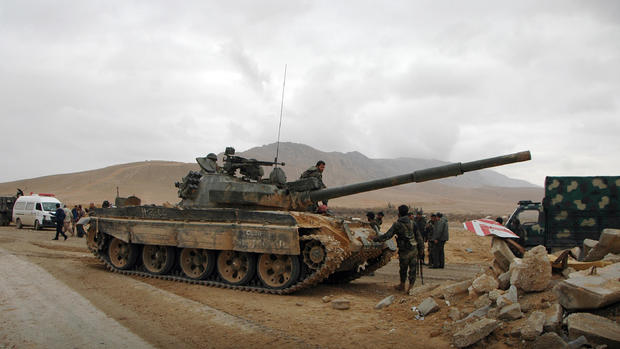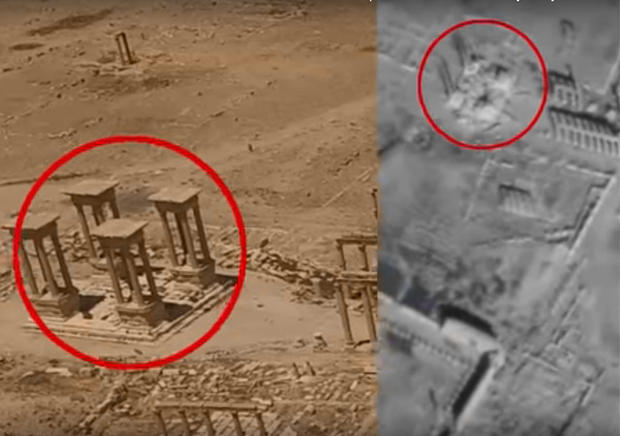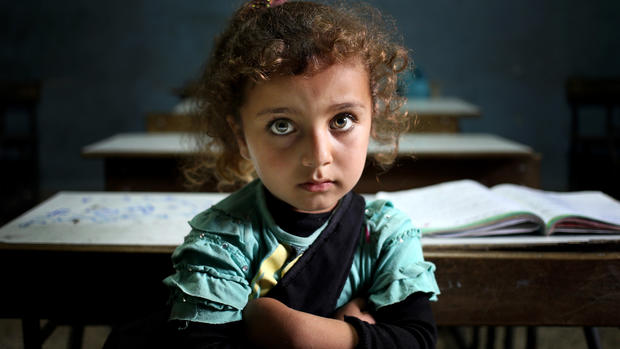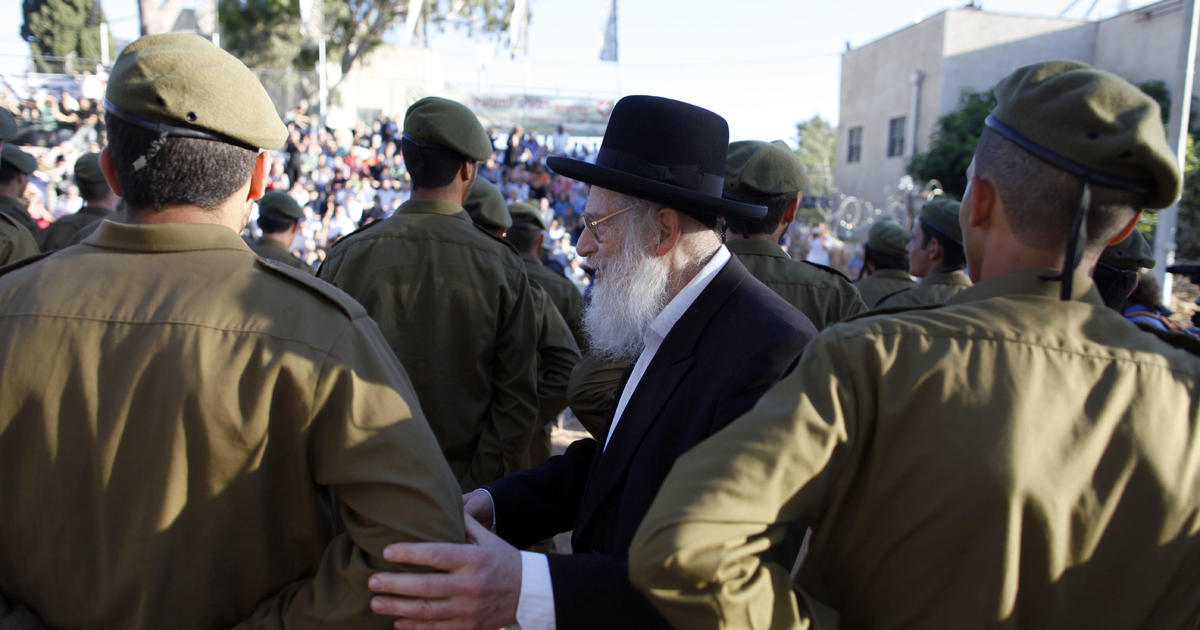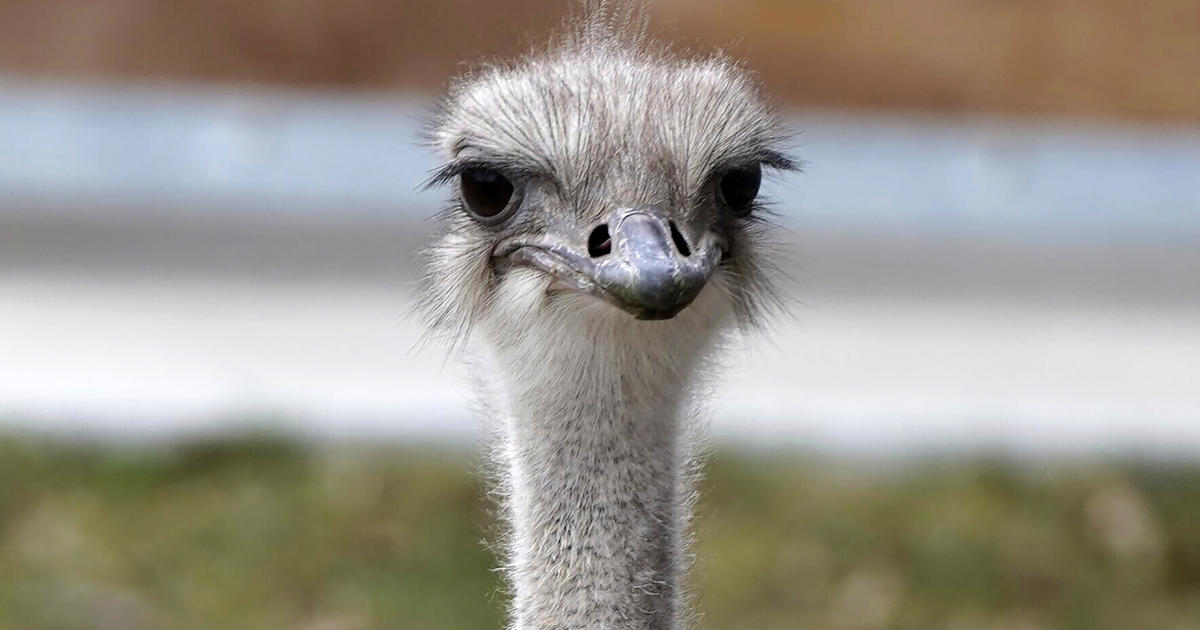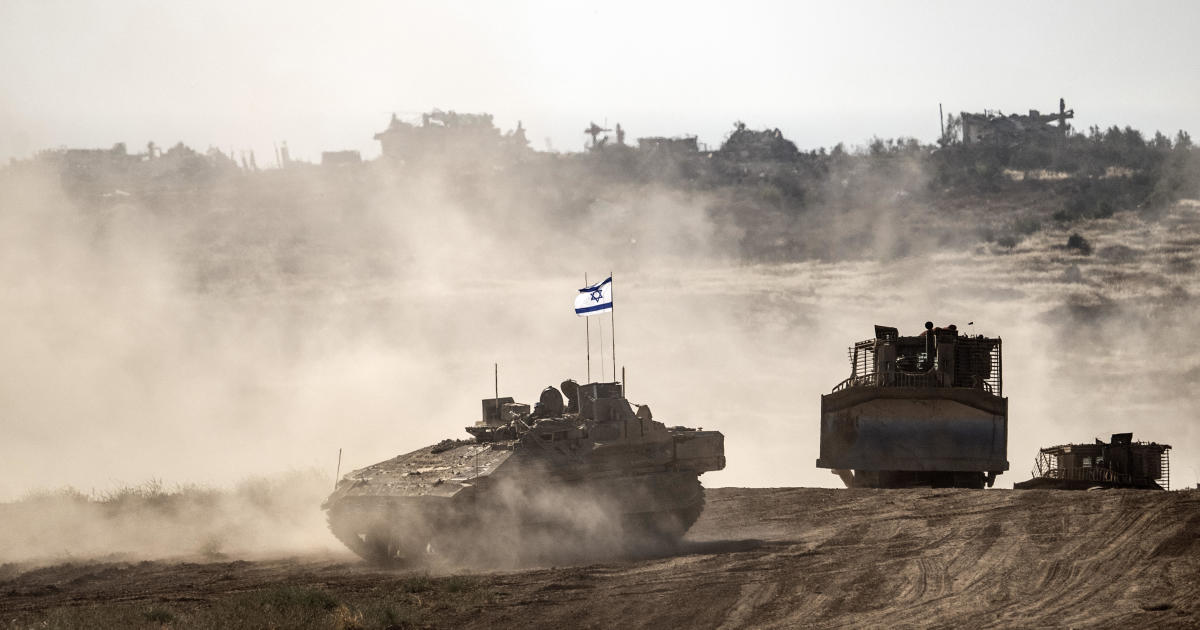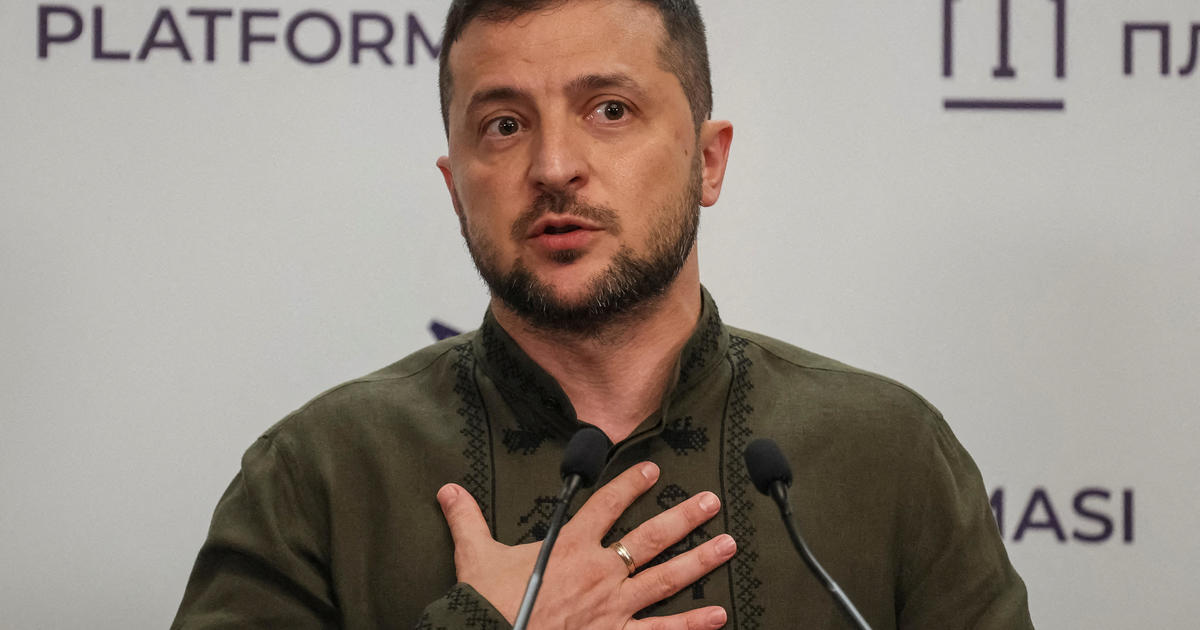Syrian army says it has retaken historic town of Palmyra from ISIS
BEIRUT -- Syria’s military has announced that it has fully recaptured the historic town of Palmyra from the Islamic State of Iraq and Syria (ISIS) extremist group for the second time in a year.
The army statement released on Thursday says that government forces are now in control of the town, following a series of military operations. The Syrian government’s push has relied on ground support from Lebanon’s militant Hezbollah group and Russian air cover, according to Hezbollah’s media outlets.
The Kremlin’s spokesman said Russian President Vladimir Putin was informed by his defense minister that Syrian troops had gained control of Palmyra, with support from Russian warplanes.
Activist-run Palmyra News Network (PNN) said the advancing forces pounded the desert town - a UNESCO World Heritage Site famed for its ancient Roman monuments and grand stone theater - with artillery and airstrikes during the day.
This is the second time the government has retaken the desert town. It seized Palmyra from ISIS militants last March only to lose it again in December. Before the civil war gripped Syria in 2011, Palmyra was a top tourist attraction, drawing tens of thousands of visitors each year.
ISIS defenses of the town had begun to erode on Sunday, with the government troops reaching Palmyra’s outskirts on Tuesday.
The Syrian Observatory for Human Rights, a Britain-based opposition monitoring group, said ISIS militants pulled out completely from Palmyra, adding that troops were conducting mopping-up operations.
Archeologists have decried what they say is extensive damage to its ruins.
Drone footage released by Russia’s Defense Ministry earlier this month showed new damage to the facade of Palmyra’s Roman-era theater and the adjoining Tetrapylon - a set of four monuments with four columns each at the center of the colonnaded road leading to the theater.
A 2014 report by a U.N. research agency disclosed satellite evidence of looting while the ruins were under Syrian military control. Opposition factions have also admitted to looting the antiquities for funds.
The ISIS group has twice used the town’s Roman theater as a stage for mass killings, most recently in January, when they shot and beheaded a number of captives they said had tried to escape their December advance. Other ISIS killings were said to have taken place in the courtyard of the Palmyra museum and in a former Russian base in the town.
The developments in Palmyra came against the backdrop of Syrian peace talks underway in Geneva, which have been without any tangible breakthroughs so far. Diplomats and negotiators have set their sights on modest achievements in the latest round of talks, after a week of discussions centering on setting an agenda for future talks.
On Thursday, U.N. Special Envoy to Syria Staffan de Mistura was due for another round of meetings with both the government delegation and opposition groups.
Russian Deputy Foreign Minister Gennady Gatilov told reporters Wednesday that “the parties have agreed to ... discuss all issues in a parallel way, on several tracks.”
After a Damascus request, the issue of terrorism is also on the table, he had said. Russia is a key sponsor of Syrian President Bashar Assad’s government in Damascus.
A top Syrian opposition negotiator, Nasr al-Hariri, said the talks would likely culminate in a closing ceremony on Friday and the parties may be back in Geneva for further discussions in a few weeks.
Setting the agenda and strategy to guide discussions has proven difficult as the main conflicting parties dig in their heels over form and semantics.
In Turkey, the country’s foreign minister said that with the completion of an operation to retake the IS-held town of al-Bab in northern Syria, Turkish troops will head to the Syrian town of Manbij next, to oust U.S.-backed Syrian Kurdish forces that Ankara views as terrorists and a threat to Turkey.
Foreign Minister Mevlut Cavusoglu said Thursday that Turkey would not shy away from attacking the Kurdish group that dominates the Syria Democratic Forces, which captured Manbij last year after weeks of deadly fighting with IS.
He renewed calls for the new U.S. administration not to support the Kurdish forces. Cavusoglu stressed that an operation to take Manbij had not started yet, but acknowledged that skirmishes between Turkish-backed forces and the Kurdish fighters may have occurred.
That front line in northern Syria was further complicated by a concurrent announcement by the Syrian Kurdish side on Thursday that they had agreed with Russia to withdraw from some of the territory between al-Bab and Manbij, to make room for a buffer.
The Manbij Military Council, part of the Kurdish-led Syrian Democratic Forces, said that under the deal, they will withdraw from a front line as the rival Turkish-backed forces near the Euphrates River. This will allow Syrian government forces to create a buffer between them.
However, Cavusoglu denied any such agreement was reached.
There was no immediate comment from the Syrian government. The Turkish and Syrian authorities have long regarded each other with thinly-veiled hostility.
